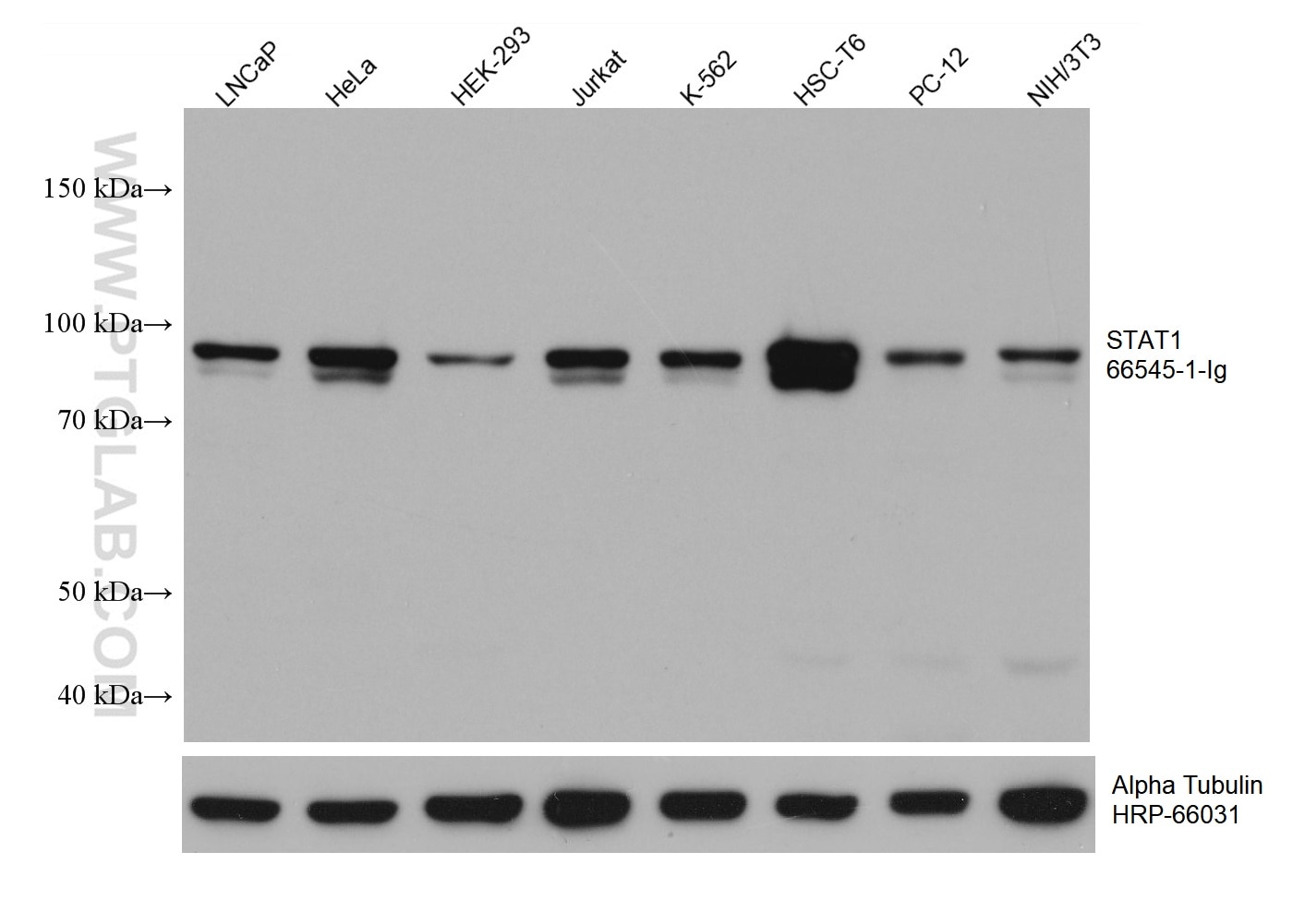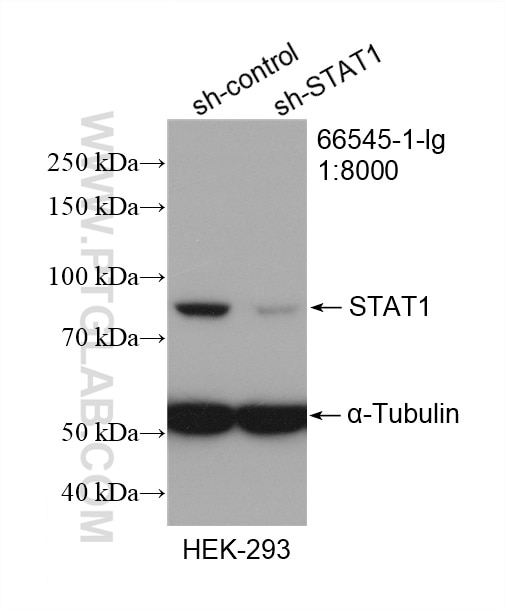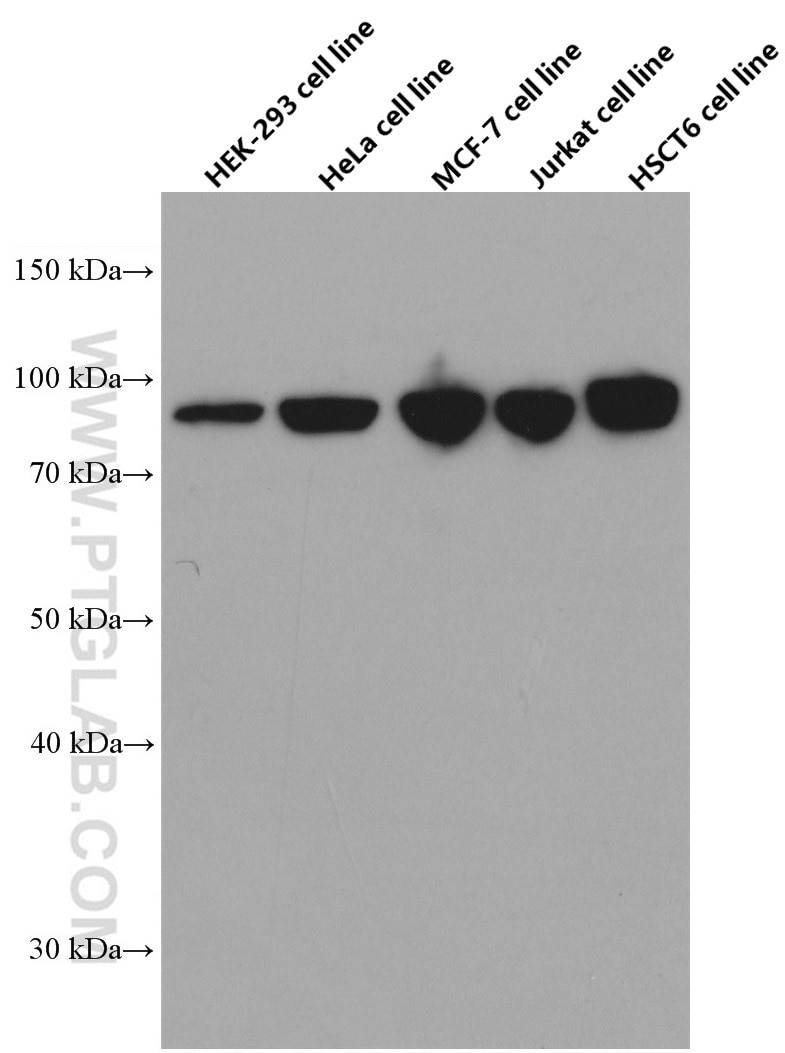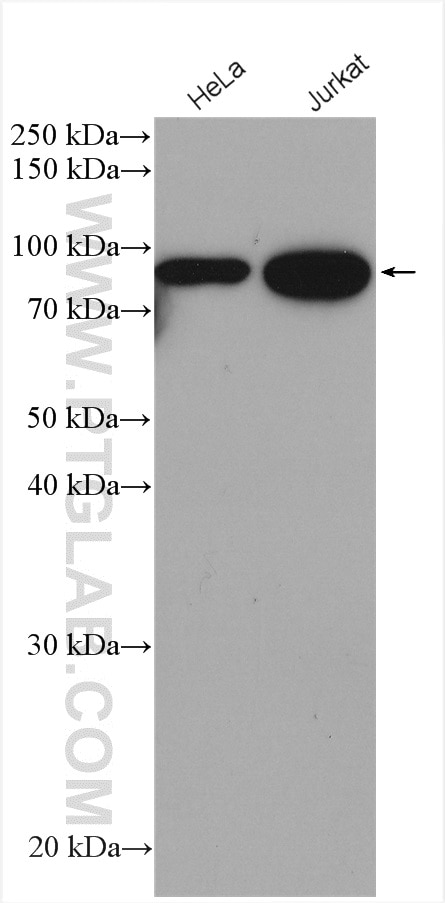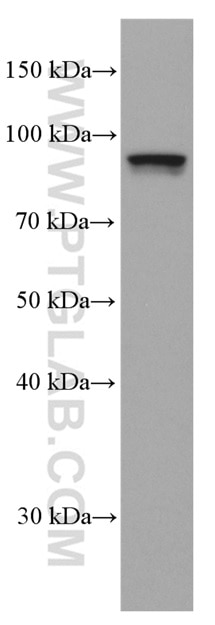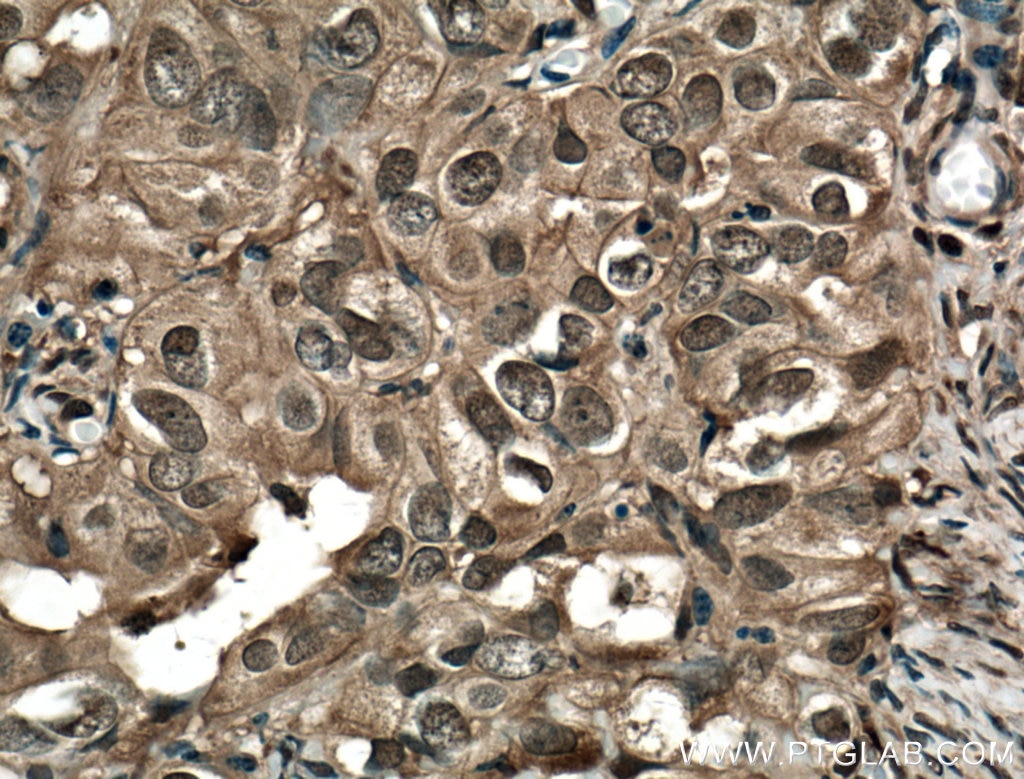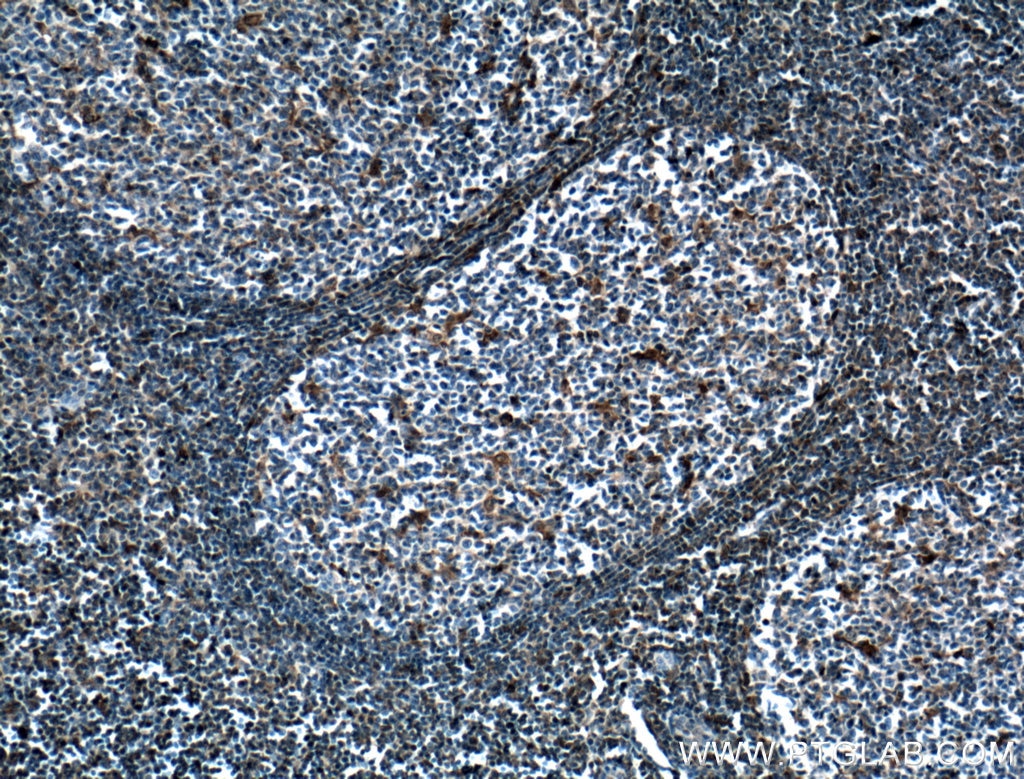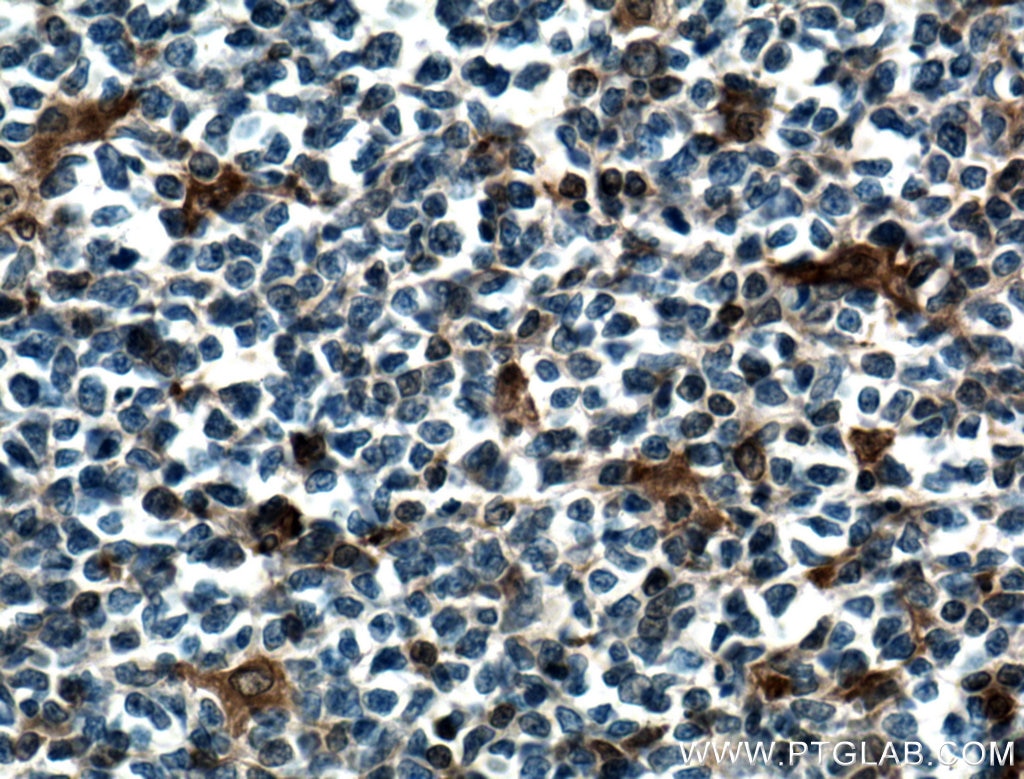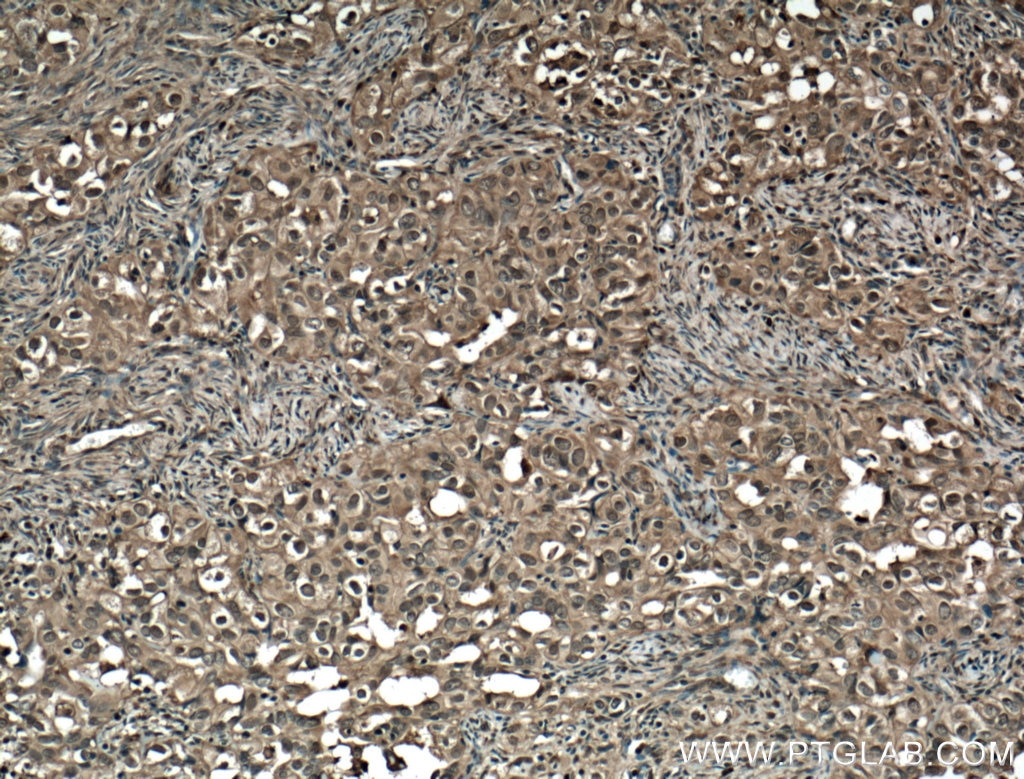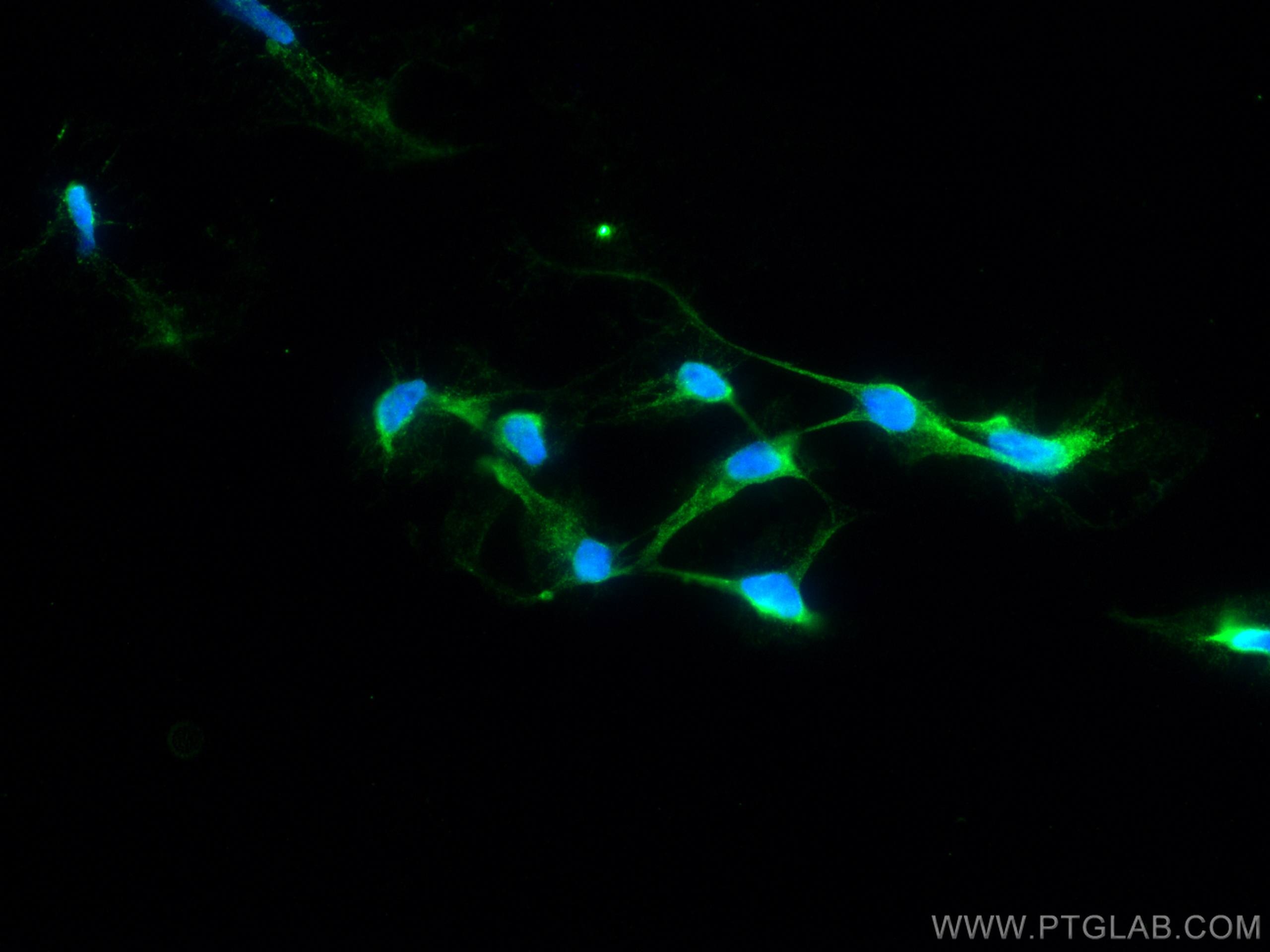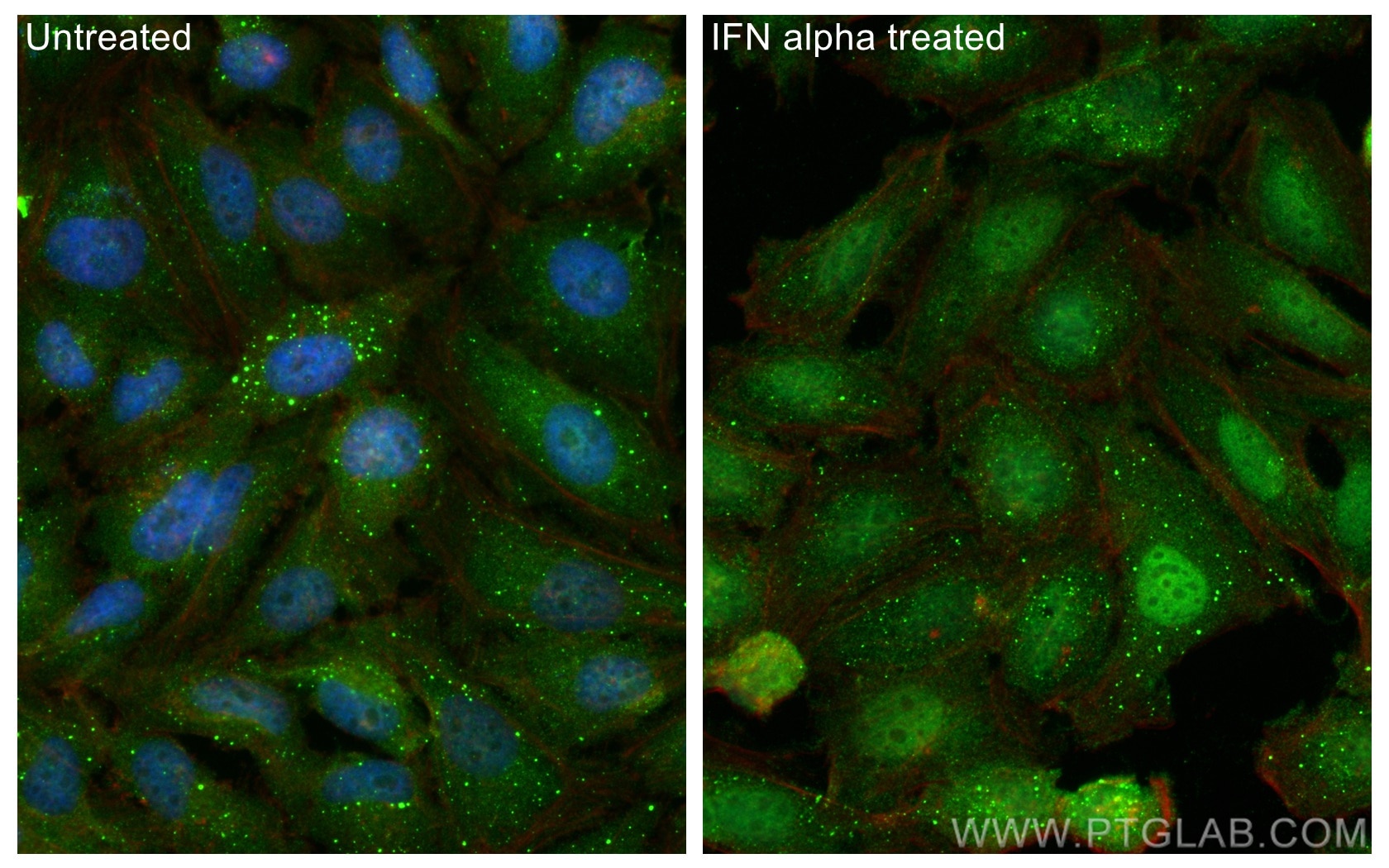- Featured Product
- KD/KO Validated
STAT1 Monoklonaler Antikörper
STAT1 Monoklonal Antikörper für WB, IHC, IF/ICC, Indirect ELISA
Wirt / Isotyp
Maus / IgG2a
Getestete Reaktivität
human, Maus, Ratte
Anwendung
WB, IHC, IF/ICC, Indirect ELISA
Konjugation
Unkonjugiert
CloneNo.
1F7C6
Kat-Nr. : 66545-1-PBS
Synonyme
Geprüfte Anwendungen
Produktinformation
66545-1-PBS bindet in WB, IHC, IF/ICC, Indirect ELISA STAT1 und zeigt Reaktivität mit human, Maus, Ratten
| Getestete Reaktivität | human, Maus, Ratte |
| Wirt / Isotyp | Maus / IgG2a |
| Klonalität | Monoklonal |
| Typ | Antikörper |
| Immunogen | STAT1 fusion protein Ag0199 |
| Vollständiger Name | signal transducer and activator of transcription 1, 91kDa |
| Berechnetes Molekulargewicht | 83 kDa |
| Beobachtetes Molekulargewicht | 84 kDa |
| GenBank-Zugangsnummer | BC002704 |
| Gene symbol | STAT1 |
| Gene ID (NCBI) | 6772 |
| Konjugation | Unkonjugiert |
| Form | Liquid |
| Reinigungsmethode | Protein-A-Reinigung |
| Lagerungspuffer | PBS only |
| Lagerungsbedingungen | Store at -80°C. 20ul Größen enthalten 0,1% BSA. |
Hintergrundinformationen
What is the molecular weight of STAT1? Are there any isoforms of STAT1? Is STAT1 post-translationally modified?
The molecular weight of STAT1 is 91 kDa for full-length STAT1α and 84 kDa for STAT1β, which is devoid of the C-terminal activation domain (PMID: 1502203). Phosphorylation of STAT1 regulates STAT1 activity. Phosphorylation of Tyr701 by Janus kinases (JAKs) triggers STAT1 homo- and hetero-dimerization with other STAT family members and also causes nuclear translocation, while phosphorylation of Ser727 is needed for full activation (PMID: 10851062). STAT1β lacks Ser727 and has therefore been considered to be inactive or acting in a dominant negative manner to STAT1α, although it has been further shown to be capable of transcription activation in vivo (PMID: 24710278).
What is the subcellular localization of STAT1?
STAT1 is present in the cytoplasm and in the nucleus. Translocation of STAT1 from the cytoplasm to the nucleus is required for its regulation of gene expression and is dependent on phosphorylation (see above). However, low levels of unphosphorylated STAT1, often referred to as U-STAT1, can also be found in the nucleus, where U-STAT1 regulates the stability of heterochromatin by binding to chromatin in monomeric or dimeric states (PMID: 18840523).
What is the tissue expression pattern of STAT1?
STAT1 is ubiquitously expressed.
